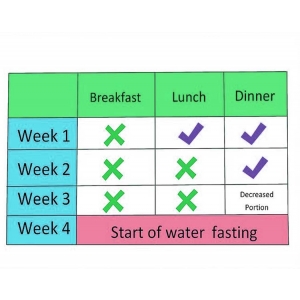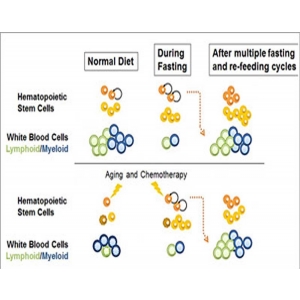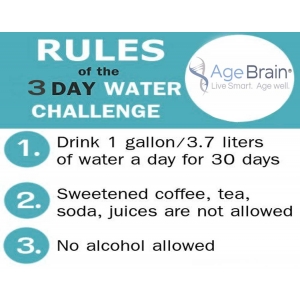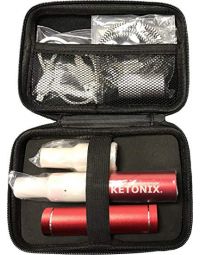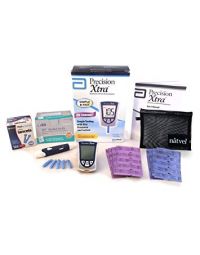The 3-day fast, also known as the water fast, is a diet trend for losing weight fast. For 72 hours, you eat or drink nothing but water. While there are some health benefits to this kind of fasting, including weight loss, there are a number of potential problems that can result from eating nothing, even for a short time.

”Fasting was effective for short-term weight loss among normal weight, overweight and obese people” (NIH.gov)

How Does the 3-Day Fast Work?
The 3-day or water fast is the most straight-forward, and perhaps most hard-core, diets. For up to three days, you consume nothing besides water. Without any energy coming from food or drink, your body must turn to its own reserves to keep itself running.
First, your body will turn to its glycogen stores to quickly restore blood sugar levels. Glycogen, which is mostly stored in your liver, consists of glucose molecules strung together in a chain, and is how your body stores extra sugar. After about a day, your body will begin burning fat instead of sugar for energy. This metabolic state is called ketosis, and comes with several health benefits of its own.1

Rapid Weight Loss from Water Fasting Isn’t the Healthiest
While on a 3-day fast, you can expect to lose around one pound of body weight per day. If you have been eating a diet high in salt and processed foods, however, you might lose as much as three pounds per day. However, not all of this weight lost is from body fat.
Much of the weight you lose during a 3-day fast is actually water weight. Since you are in a state of simulated starvation, your body will also turn to its structures - not just fat - for sources of energy. Rapid weight loss results in a reduction in your muscle mass as well. If you want to lose weight mostly from fat, while keeping your muscles in shape, a slower method of weight loss would be preferable.2


The 3-Day Fast Promotes Autophagy- Making Cells Healthier
One of the benefits to short-term fasting is that it causes your body to undergo a process known as autophagy. During autophagy, your cells break down old and possibly damaged components to recycle as energy or new building blocks. Research suggests that enhanced autophagy can increase life expectancy and protect against certain diseases like cancer and Alzheimer’s disease.1, 3

Talk to Your Doctor before Fasting
You should always work under the guidance of your doctor if you are planning to fast for longer than three days. Even for three days or less, it might be a good idea to talk to your family doctor or a nutritionist. There are several health conditions that could make fasting dangerous, such as:4-6
- Kidney disease
- Diabetes (type I or type II)
- Eating disorders
- Gastroesophageal reflux disease (GERD) or heartburn
- Gout
- Pregnancy
- Old age
- Low blood pressure (hypotension)


Important Dos and Don’ts for Water Fasting
Do:
- Prepare yourself by eating lightly or fasting part of the day beforehand
- Drink plenty of water, since you normally get a lot of your daily water intake from food and caloric beverages
- Take it easy and get plenty of rest
- Stop fasting if you feel dizzy, faint, or experience other symptoms
- Break your fast with a light meal, such as a smoothie
Don’t:
- Exercise more than gentle walking
- Eat a large, heavy meal immediately after finishing your fast
- Fast if you are a child or teenager
[1] VD Longo and MP Mattson. 2014. "Fasting: molecular mechanisms and clinical applications." Cell metabolism. 19(2):181-192. https://www.ncbi.nlm.nih.gov/pmc/articles/PMC3946160/
[2] D Ashtary-Larky, M Ghanavati, N Lamuchi-Deli, SA Payami, S Alavi-Rad, M Boustaninejad, R Afrisham, A Abbasnezhad, and M Alipour. 2017. "Rapid Weight Loss vs. Slow Weight Loss: Which is More Effective on Body Composition and Metabolic Risk Factors?" International journal of endocrinology and metabolism. 15(3):e13249-e13249. https://www.ncbi.nlm.nih.gov/pmc/articles/PMC5702468/
[3] M Alirezaei, CC Kemball, CT Flynn, MR Wood, JL Whitton, and WB Kiosses. 2010. "Short-term fasting induces profound neuronal autophagy." Autophagy. 6(6):702-710. https://www.ncbi.nlm.nih.gov/pmc/articles/PMC3106288/
[4] AA Bakhit, AM Kurdi, JJ Wadera, and AO Alsuwaida. 2017. "Effects of Ramadan fasting on moderate to severe chronic kidney disease. A prospective observational study." Saudi medical journal. 38(1):48-52. https://www.ncbi.nlm.nih.gov/pmc/articles/PMC5278065/
[5] PR Kerndt, JL Naughton, CE Driscoll, and DA Loxterkamp. 1982. "Fasting: the history, pathophysiology and complications." The Western journal of medicine. 137(5):379-399. https://www.ncbi.nlm.nih.gov/pmc/articles/PMC1274154/
[6] E Stice, K Davis, NP Miller, and CN Marti. 2008. "Fasting increases risk for onset of binge eating and bulimic pathology: a 5-year prospective study." Journal of abnormal psychology. 117(4):941-946. https://www.ncbi.nlm.nih.gov/pmc/articles/PMC2850570/
Search the blog
Article Categories
- All Articles (95)
- Rating Charts (1)
- Beauty & Skincare (17)
- FAQ (0)
- Hair Care (9)
- Health & Wellness (12)
- Anti-Aging (4)
- Kid's Health (0)
- Makeup (2)
- Men's Health (2)
- Oral Care (3)
- Sunscreen (7)
- Skin Tools & Treatments (10)
- Supplements (26)
- Videos (0)

